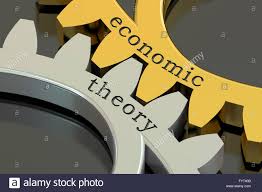
Applying Economic Theory to Corporate Governance and Employee Performance Evaluation
Order Instructions:
Assignment #1 (1 page and 3 references)
Applying Economic Theory to Corporate Governance and Employee Performance Evaluation
Firms exist because they represent more or less optimal responses to a costly market contracting environment for both resource inputs and product outputs. At the same time, such optimal responses do not occur spontaneously. Rather, such responses require knowledgeable, competent managers who can develop and implement plans, while offering proper incentives to employees.
Whether you are a researcher, or an executive, or a consultant, you need to understand the economic theories that explain and predict what makes firms’ responses to costly market contracting factors as optimal as possible. This means, you need to be able to identify the conditions under which a firm is likely to create value and remain economically efficient.
In this Discussion, you will explore the basic dimensions and implications of such economic theories, as they apply to corporate governance and employee performance evaluation. You will also discuss how managerial accounting systems and methods can best serve the objectives of corporate governance and employee performance evaluation.
By Day 5 of Week 1, respond to at least two of the following questions:
1. What data would you use in analyzing corporate governance and employee performance evaluation systems, and why?
2. How do you categorize corporate governance and performance evaluation systems as optimal or suboptimal, and what criteria need to be used in the evaluation?
3. Why is an understanding of the economic theories underlying corporate governance and employee performance evaluation systems critical to understanding managerial accounting?
4. How would you apply economic theories of corporate governance and performance evaluation in resolving planning and control issues in organizations?
SAMPLE ANSWER
Applying Economic Theory to Corporate Governance
Q1. What data would you use in analyzing corporate governance and employee
performance evaluation systems, and why?
Corporate governance is about crating efficiencies for the firm. In this case, the data that would be most effective would come from sources such as sales data, production data and the human resources database (Daily, Dalton, & Cannella, 2003 ). The sales data can because to indicate a number of useful information such as how effective the sales force is. Point of Sale (POS) data for retailing firm can be useful in determine which shelf arrangements are likely to drive sales by. Production data can be used to determine which production strategy provides the most effective production in turn of productivity per employees and marginal costs as well as the elasticity of the production. HR database and payroll system can also be used by managerial accountants to determine the effectiveness and productivity of the firm’s labour force. If the firm is able to collect as much data as possible, this data can be used to do analysis to determine how efficiencies can be achieved in the firm (Klapper & Love, 2004).
Q3. Why is an understanding of the economic theories underlying corporate governance and employee performance evaluation systems critical to understanding managerial accounting?
Understanding of the economic theories and the underlying corporate governance as well as employee performance evaluation systems is critical to understanding managerial accounting. This is because managerial accounts need to be able to know which set up will bring in the most effective way of operations. Just like marketers try to understand consumer behaviour in order to know which sales methods, packaging style and other factors that will increase sales, managerial accounts need to understand which production strategies, operation strategies and corporate culture will help the firm to have the highest efficiencies. In general economics, a number of factors work together to determine how consumers behave and how much they buy. Having the best combination of these factors will help a firm in driving sales. As Manzoni and Islam (2009) point out, in corporate governance too, a number of factors within the organization determine issues such as the productivity, innovativeness and motivation of the employees. Having the best combination of these factors makes the firm effective.
References
Daily, C., Dalton, D., & Cannella, A. (2003 ). Corporate Governance: Decades of Dialogue and Data. ACADemy of MANAGEment REView, 1, vol. 28 , 3 371-382 .
Klapper, L., & Love, I. (2004). Corporate governance, investor protection, and performance in emerging markets. Journal of Corporate Finance, 10, 5 , 703–728.
Manzoni, A., & Islam, M. (2009). Performance Measurement in Corporate Governance: DEA Modelling and Implications for Organisational Behaviour and Supply Chain Management. New York City, NY: Springer Science & Business Media.
We can write this or a similar paper for you! Simply fill the order form!




